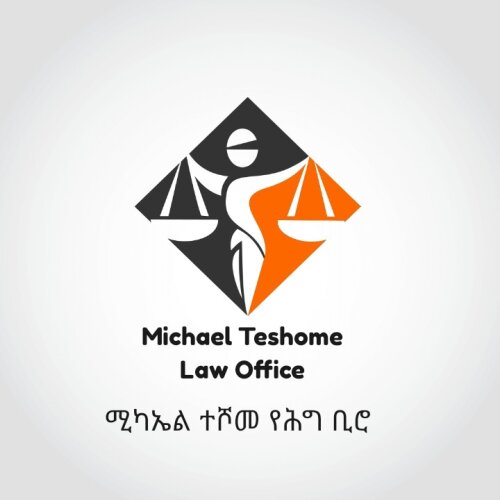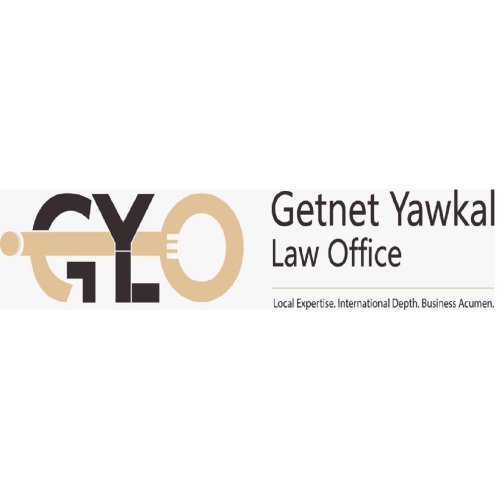Best Labor Law Lawyers in Ethiopia
Share your needs with us, get contacted by law firms.
Free. Takes 2 min.
Or refine your search by selecting a city:
List of the best lawyers in Ethiopia
About Labor Law in Ethiopia
Labor Law in Ethiopia is designed to regulate the relationship between employers and employees, ensuring that the rights and responsibilities of both parties are clearly defined and protected. Based on Proclamation No. 1156/2019, it covers areas such as employment contracts, working conditions, wages, occupational health and safety, and the resolution of labor disputes. The legal framework aims to promote fair employment practices and economic development while ensuring the harmony and welfare of the workforce.
Why You May Need a Lawyer
There are several situations where individuals or companies may require legal assistance in the realm of labor law in Ethiopia:
- Employment Contracts: Employers and employees may need legal help drafting, reviewing, or negotiating terms to ensure compliance with local laws.
- Workplace Disputes: Issues such as wrongful termination, discrimination, or harassment may require legal intervention to resolve.
- Wages and Benefits: Disputes regarding salaries, benefits, or overtime pay can arise, necessitating legal expertise.
- Health and Safety Compliance: Legal advice might be required to ensure compliance with occupational health and safety standards.
- Collective Bargaining: Lawyers can assist in negotiating and drafting collective agreements with trade unions.
Local Laws Overview
Labor Law in Ethiopia is governed by several key legislations and aspects:
- Employment Contract: It must be in writing and include essential details about the employment relationship, such as job description, wages, and duration.
- Working Hours and Rest: Normal working hours should not exceed 48 hours a week, with provisions for daily and weekly rest periods.
- Minimum Wage: While there is no nationwide minimum wage, sector-specific agreements might stipulate benchmarks.
- Termination of Employment: Employees have the right to notice and severance pay under certain conditions unless they are terminated for just cause.
- Labor Unions: Workers have the right to form and join trade unions, which play a significant role in collective bargaining and representation.
Frequently Asked Questions
What is the legal framework governing labor relations in Ethiopia?
The primary legislation is the Ethiopian Labor Proclamation No. 1156/2019, which outlines the rights and duties of employers and employees.
Are written employment contracts mandatory in Ethiopia?
Yes, employment contracts must be in writing and contain specific details regarding the terms of employment.
How is working time regulated under Ethiopian law?
The standard working hours in Ethiopia are 8 hours a day or 48 hours a week, with entitlement to daily and weekly rest periods.
Can an employer terminate an employee without notice?
Termination without notice is only permissible if the employee is dismissed for just cause. Otherwise, notice and compensation are required.
Are there specific minimum wages established in Ethiopia?
There is no universal minimum wage, but sector-specific agreements may set minimum pay standards.
What rights do employees have regarding workplace health and safety?
Employers are required to ensure the workplace is safe and healthy, and employees have the right to refuse dangerous work.
What is the role of labor unions in Ethiopia?
Labor unions represent workers' interests, engage in collective bargaining, and support members in resolving disputes.
How are labor disputes resolved in Ethiopia?
Disputes can be addressed through internal company procedures, negotiation, conciliation, and, if necessary, labor courts.
What protections exist against workplace discrimination?
The law prohibits discrimination based on race, ethnicity, sex, religion, or political affiliation, ensuring equality in employment opportunities.
Where can employees seek advice on labor rights?
Employees can seek advice from the Labor Ministry, trade unions, or legal professionals specializing in labor law.
Additional Resources
For more information and support, consider contacting the following:
- Ministry of Labor and Social Affairs (MoLSA): Offers guidance and oversight on labor relations and worker welfare.
- The Confederation of Ethiopian Trade Unions (CETU): Provides assistance and representation to union members.
- Ethiopian Employers' Federation: Provides resources and guidance to employers on labor compliance.
- Legal Aid Clinics: Available at some universities and NGOs to offer free or low-cost legal advice.
Next Steps
If you need legal assistance in labor law, consider the following steps:
- Identify Your Needs: Clearly define the legal issues you are facing.
- Gather Documentation: Collect all relevant documents, such as employment contracts, pay stubs, or correspondence.
- Seek Legal Counsel: Contact a lawyer with experience in labor law to understand your rights and options.
- Explore Alternative Dispute Resolution: Consider conciliation or mediation to resolve disputes amicably.
- Prepare for Legal Action if Necessary: If negotiations fail, your lawyer can guide you through the process of taking legal action.
Lawzana helps you find the best lawyers and law firms in Ethiopia through a curated and pre-screened list of qualified legal professionals. Our platform offers rankings and detailed profiles of attorneys and law firms, allowing you to compare based on practice areas, including Labor Law, experience, and client feedback.
Each profile includes a description of the firm's areas of practice, client reviews, team members and partners, year of establishment, spoken languages, office locations, contact information, social media presence, and any published articles or resources. Most firms on our platform speak English and are experienced in both local and international legal matters.
Get a quote from top-rated law firms in Ethiopia — quickly, securely, and without unnecessary hassle.
Disclaimer:
The information provided on this page is for general informational purposes only and does not constitute legal advice. While we strive to ensure the accuracy and relevance of the content, legal information may change over time, and interpretations of the law can vary. You should always consult with a qualified legal professional for advice specific to your situation.
We disclaim all liability for actions taken or not taken based on the content of this page. If you believe any information is incorrect or outdated, please contact us, and we will review and update it where appropriate.
Browse labor law law firms by city in Ethiopia
Refine your search by selecting a city.

















